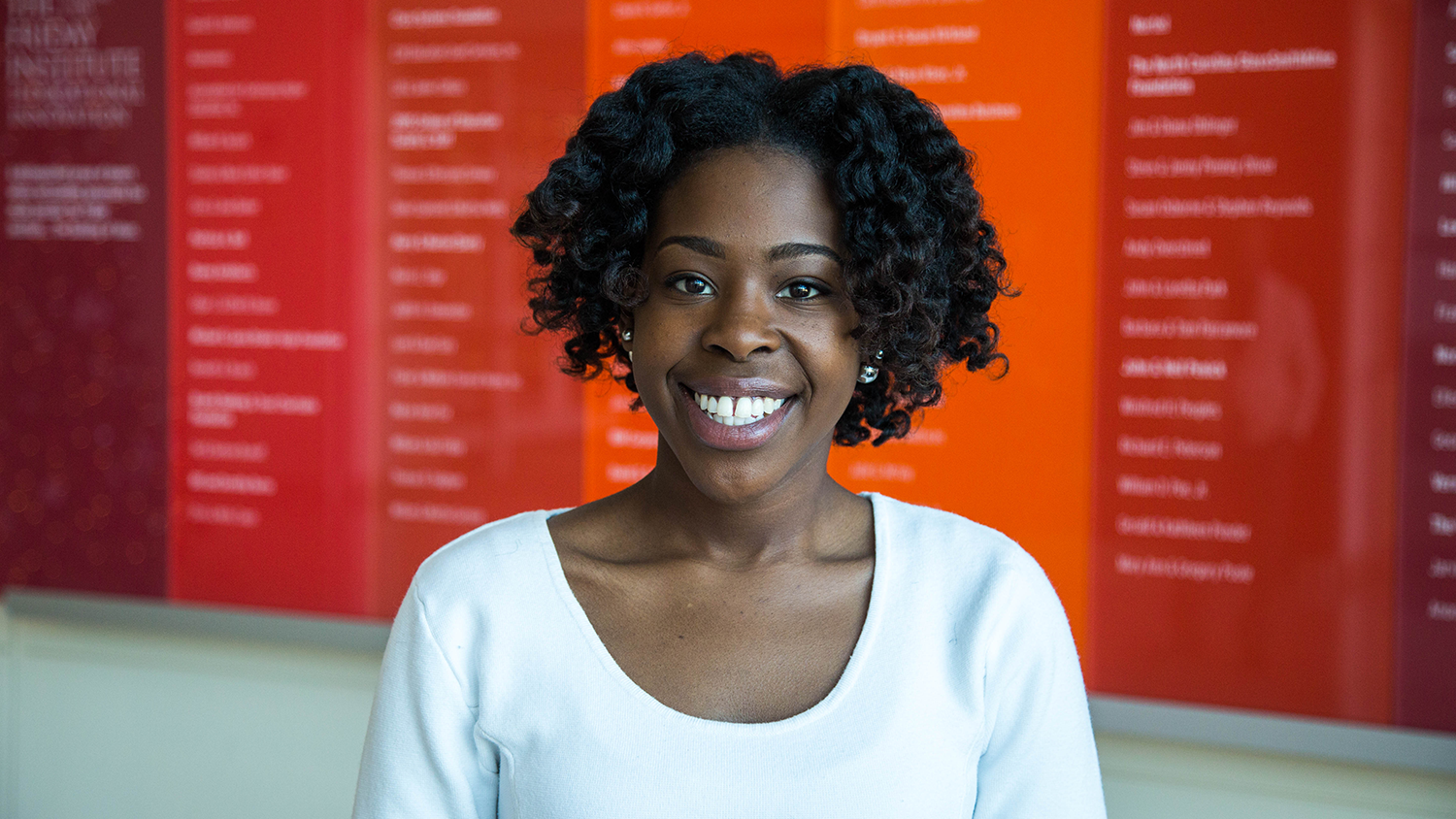NC State Education Graduate Student Wins First Prize for Research Poster

Briana Green, a master’s student in the NC State College of Education’s educational psychology program, won first prize in the research poster competition at the American Psychological Association Division 45 Society for the Psychological Study of Culture, Ethnicity, and Race Research Conference.
Green is in her second year of the master’s program. She earned an undergraduate degree in business and marketing from NC State and is from Jacksonville, North Carolina.
This year’s Division 45 Conference, held in Austin, Texas, in July, was Green’s first time attending the biennial specialty breakout conference of the American Psychological Association. Division 45 focuses on ethnicity and race.
The winning poster presentations scored highest in excellence in research, depth of understanding and clarity in presentation. Green’s research, co-authored by NC State Education Associate Professor DeLeon Gray and Tamika McElveen, is entitled, “Identifying Associations Between Parental Ethnic Socialization Messages and STEM Achievement Motivation Beliefs.”
In a sample of over 100 Black and Latinx sixth graders, researchers found that messages from parents about ethnic pride and cultural values were associated with students’ identification with engineering and their outlook on their future success in STEM fields. The research was funded by the National Science Foundation through the SMART Labs iScholar Project.
This project received a mini-grant from the Office for Institutional Equity and Diversity in 2013. OIED’s Diversity Mini-Grants provide startup funds for diversity and equity initiatives.
Black Adolescent Engagement in STEM
Green’s research focuses on Black adolescent achievement and engagement in STEM, the influence of adult socializers’ practices and messages (including parents and teachers), culturally relevant pedagogies in the classroom and culturally sensitive research approaches. The study is nested within a larger three-year study of middle school students in Durham Public Schools.
When asked why she chose the topic, Green states, “A lot of psychology research has not really considered culture, how students achieve and how everything rests on a cultural platform. When thinking about how students are motivated, and how they perform, we don’t always think about how parental messages affect students. [My research looks at] this motivation and how messages from parents can be seen as tools that can be leveraged in the classroom to connect students’ home and school lives with new learning.” Green also notes that educational psychology has not focused as much on race and culture as the overall field of psychology.
The study is still going; as curriculum lead for the project, Green will mentor undergraduates and their activities related to the project this semester. The project will also begin collecting artifacts related to the middle school students, such as worksheets and other products that the students create, a new approach to considering student learning and thinking. Focus groups will gain insight into how the subjects engage with STEM and how the tools inform their activities. Overall, their findings will measure changes in perceptions and attitudes toward STEM over time.
Adds Green, “Another part of the study will examine culturally sensitive approaches to partnering with schools, given that researchers do not always have the best working relationships with schools. Teachers optionally participate in the project, so making sure the vision is a shared vision, addressing their needs and being responsive are critical.”
OIED Connections
In August, Green volunteered at the inaugural Multicultural Graduate Student Orientation, organized and hosted by Multicultural Student Affairs. Active in the African American Cultural Center as an AYA Ambassador during her undergraduate years, she has enjoyed spending more time in another of OIED’s campus community centers this year.
“I am really excited and proud of the new initiatives to support grad students. I knew the campus as an undergrad, but support looks different for a grad student. It is nice to see ourselves represented and learn more,” she states. “I enjoy visiting MSA while undergoing the rigorous grad school life, rejuvenating my sense of self and interacting with undergrads.”
Green also references the new emphasis on research and engagement with graduate students and faculty in African American Cultural Center, coordinated by Assistant Director Sachelle Ford.
This article was originally published in Diversity News.
Erin Elliot, a second-year graduate student in educational psychology and a graduate assistant in Multicultural Student Affairs, contributed to this article.
- Categories:


